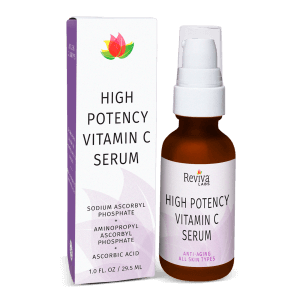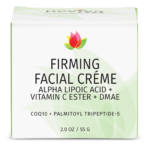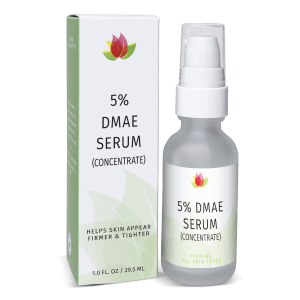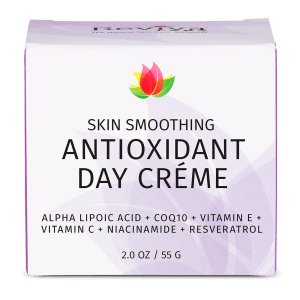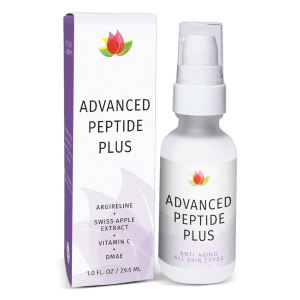Ingredients, Reviva Labs, Skin Care
Decoding those hard to pronounce ingredients
When it comes to skincare, some ingredients on the label may leave you puzzled, especially when they’re difficult to pronounce. Yet, these tongue-twisting names often belong to powerful ingredients that can offer significant benefits to your skin. Let’s explore some of these complex-sounding ingredients, breaking down their roles in skincare and why they’re worthy of a spot in your routine.
Niacinamide – A Multitasking Marvel
Niacinamide, also known as Vitamin B3, is one of those ingredients that appears in a wide range of skincare products, and for good reason. It’s a versatile compound that helps improve the skin’s barrier function, which is essential for maintaining hydration. By boosting the production of ceramides, niacinamide helps the skin retain moisture and protects it from environmental stressors.
Moreover, niacinamide is renowned for its anti-inflammatory properties, making it an excellent choice for those with acne-prone or sensitive skin. It can help reduce redness, blotchiness, and irritation, leading to a more even-toned complexion. Additionally, niacinamide has been shown to regulate oil production, which can be particularly beneficial for individuals with oily skin.
Hyaluronic Acid – The Ultimate Hydrator
Hyaluronic acid might sound intimidating, but it’s actually a naturally occurring substance in our bodies that plays a crucial role in skin hydration. This ingredient is celebrated for its ability to hold up to 1,000 times its weight in water, making it an unparalleled moisturizer. When applied topically, hyaluronic acid helps to plump up the skin, reducing the appearance of fine lines and wrinkles.
What makes hyaluronic acid particularly appealing is its lightweight texture, which allows it to be easily absorbed by the skin without leaving a greasy residue. This makes it suitable for all skin types, including oily and combination skin. Whether you’re dealing with dry patches or simply want to maintain a youthful glow, hyaluronic acid is a key ingredient to look for.
Aminopropyl Ascorbyl Phosphate – A Gentle yet Potent Form of Vitamin C
Like other forms of Vitamin C, Aminopropyl Ascorbyl Phosphate is a potent antioxidant but one of the significant advantages of Aminopropyl Ascorbyl Phosphate over other Vitamin C derivatives is its gentle nature. It’s less likely to cause irritation, making it suitable for those with sensitive skin or those new to Vitamin C products.
In addition to protecting the skin from free radical damage caused by environmental factors like UV radiation and pollution, Aminopropyl Ascorbyl Phosphate is effective at brightening the skin and improving overall skin tone. It can help reduce the appearance of dark spots and hyperpigmentation, which gives you a more even and radiant complexion.

Lastly, Aminopropyl Ascorbyl Phosphate supports the skin’s natural collagen production, which can help maintain skin firmness and elasticity, reducing the signs of aging.
Dimethylaminoethanol (DMAE) – Firming and Lifting
Dimethylaminoethanol, or DMAE, might be tricky to pronounce, but it’s a name you’ll want to remember if you’re concerned about sagging skin. DMAE is often used in skincare products for its firming and lifting effects. It works by stabilizing cell membranes and reducing the buildup of substances that can cause skin to sag over time.
Regular use of DMAE can lead to a more contoured, youthful appearance, with improved skin tone and texture. It’s particularly popular in anti-aging products because it offers immediate tightening effects as well as long-term benefits. While DMAE is effective, it’s important to use it as directed, as higher concentrations can sometimes cause irritation in sensitive skin types.
Palmitoyl Pentapeptide-4 – The Collagen-Boosting Peptide
Peptides are short chains of amino acids that serve as the building blocks of proteins like collagen and elastin. Palmitoyl pentapeptide-4, often referred to as Matrixyl, is a well-known peptide in the skincare industry, particularly for its ability to stimulate collagen production. As we age, collagen levels in the skin decrease, leading to wrinkles and sagging. Incorporating peptides like palmitoyl pentapeptide-4 into your skincare routine can help combat these signs of aging by encouraging the skin to produce more collagen.
This ingredient is commonly found in anti-aging creams and serums, where it works to reduce the appearance of fine lines and wrinkles. Over time, products containing palmitoyl pentapeptide-4 can help improve skin firmness and elasticity, giving you a more youthful complexion. Additionally, peptides are generally well-tolerated, making them suitable for most skin types.
Ethylhexylglycerin – A Multifunctional Preservative
Ethylhexylglycerin might not roll off the tongue, but it’s a valuable ingredient in skincare formulations. This compound is often used as a preservative and conditioning agent, helping to enhance the shelf life of products while also providing skin-soothing benefits. Ethylhexylglycerin is known for its antimicrobial properties, which can help keep products free from harmful bacteria and other microorganisms.
Beyond its preservative function, ethylhexylglycerin also has a moisturizing effect, making it a useful addition to formulations for dry or sensitive skin. It works by conditioning the skin, leaving it feeling soft and smooth without clogging pores. This ingredient is often used in conjunction with other preservatives to boost their effectiveness and is considered safe for use in a wide range of skincare products.
So, while navigating skincare labels can be intimidating, these complex-sounding ingredients often play crucial roles in maintaining and improving skin health. From the hydrating power of hyaluronic acid to the collagen-boosting effects of palmitoyl pentapeptide-4, these ingredients are worth understanding and incorporating into your skincare routine. By learning more about what these ingredients do and how they benefit your skin, you can make more informed choices and achieve better results from your skincare products.







